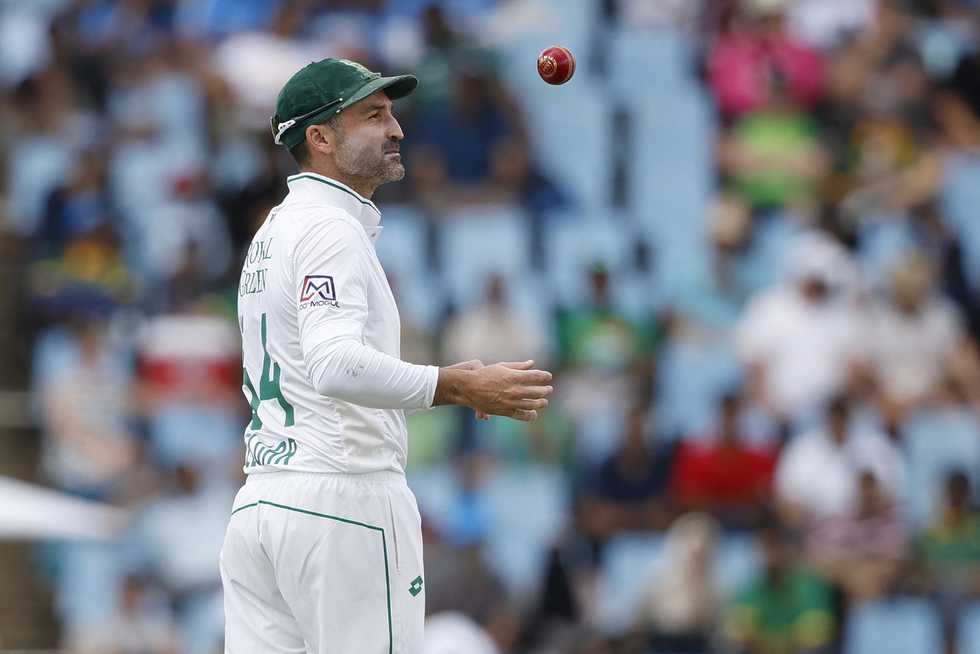
South Africa, SA20 fixture jam prompts a clash of cricket civilisations

Pat Cummins' CA contract is worth more than double what CSA pay Quinton de Kock, Kagiso Rabada, David Miller and Aiden Markram combined. Steve Waugh, sitting on a pile of 168 Test caps in the privilege of his developed world ivory tower, should think about that before he shoots his mouth off.
"Obviously they don't care," Waugh was quoted as saying by the Sydney Morning Herald on Monday in response to South Africa selecting seven uncapped players, including Neil Brand, as captain, in their squad of 14 to play two men's Tests in New Zealand next month. The matches clash with the second edition of the SA20, which CSA's contracted players are required to make their top priority - ahead, even, of international commitments.
A CSA statement on Tuesday sought to "reassure the fans that CSA has the utmost respect for the Test format as the pinnacle of the game we love". It made the valid point that "the dates for this tour were set when the Future Tours Programme for 2023 to 2027 was finalised in 2022. The window for the SA20 had not been determined at that stage."
What was done to try and avoid the problem? "We made every effort to find another mutually suitable time-slot ... in consultation with NZC. Regrettably the constraints imposed by the global cricket calendar rendered this impossible, as the games must be played before April 2025 as part of the WTC."
The SA20 is financially more important than most of the international cricket South Africa play because, besides tours by India and ICC disbursements, it is CSA's only profitable project. The tournament is designed as South African cricket's gift that keeps on giving annually. Without it, because of rampant mismanagement by previous administrators, the game could go out of business in this country. But, where Waugh sat, that didn't seem to matter.
"If I was New Zealand I wouldn't even play the series," he said. "I don't know why they're even playing. Why would you when it shows a lack of respect for New Zealand cricket?"
He warned that if "the ICC or someone doesn't step in shortly then Test cricket doesn't become Test cricket because you're not testing yourself against the best players". Waugh conceded that players are "not getting paid properly", and he offered a remedy in the form of a "regulation set fee for Test matches" to be footed by the "ICC or the top countries who are making a lot of money". It's a useful idea, but it wouldn't solve the central problem of uneven contracting between countries: the rich would still be richer, the poor poorer.
Whether Waugh counted Australia among those "top countries who are making a lot of money", and who should thus help out, wasn't made clear. But there can be no doubt he was referring to India - whose board, the BCCI, will keep 38.5% of the ICC's earnings from 2024 to 2027. No other ICC member's percentage is in double figures. But India earn more than 80% of that money. Considering their status as financial giants of the world game, did India have a greater duty to ensure the future of Test cricket than other countries?
Asked exactly that question at a press conference at Newlands on Monday, the day before the start of the second Test, Rohit Sharma said India did indeed have that responsibility. Then he backtracked to a neutral position. "I think so; absolutely," Sharma said. "Test cricket is something that we all have to protect and give importance to. It's just not one or two countries' responsibility. It's all the nations who are playing. It's their responsibility to make sure that we keep it entertaining. Around the world a lot of solid Test cricket is being played, which is good. It's everyone's duty to make sure that it stays nice and healthy and it stays competitive. It's everyone's responsibility."
What did he make of CSA's actions? "For me Test cricket is the ultimate challenge and you would want to see the best players playing in that format," Sharma said. "Everyone has their own problems to deal with. I am pretty sure there is a reason behind it. I don't know what the reason is, but definitely Test cricket is something we want to see - the best cricket being played and having your top players available.
"I don't know what the internal talks and discussions are in CSA. From my perspective, I think it's important that there is priority and thought given to Test cricket because it's the ultimate challenge that you face in this sport. And you want to be challenged every day. Luckily we don't have those kinds of problems to deal with at this point in time."
Note Sharma's absence of sanctimoniousness, which Waugh wasn't short of: "History and tradition must count for something. If we stand by and allow profits to be the defining criteria the legacy of Bradman, Grace and Sobers will be irrelevant." Michael Clarke, too, leapt onto a high horse to declare that "no domestic competition should come in front of" Test cricket, without any apparent understanding of the reality of the situation.

Happily, not all Australians have appointed themselves grandiose guardians of the global game. "If I was a player from another nation and getting paid OK to play international cricket, [and] I'm getting paid a truckload more to play T20 cricket, I'm sorry but I'm going to be playing the T20 cricket," Usman Khawaja told Fox Cricket. "I love playing for my country, but it is also a case of looking after your family, doing things right. If two people get paid to do the same job and you're getting paid twice as much at one firm and half at the other firm, you're going to pick the one you're getting paid [more] for."
In other words, if Bradman, Grace and Sobers, and indeed Waugh and Clarke, had been made better offers, what would they have done? Dean Elgar doesn't have to wonder about that. He was South Africa's captain in March 2022, when CSA told their players to choose between the IPL and a Test series against Bangladesh.
"It's a tough one leaving that up to the players, but this is how we'll see where their loyalty lies," Elgar said at the time. "They mustn't forget that Test and one-day cricket got them into the IPL, not the other way around. You don't want players to miss out on a big occasion like the IPL, by no means. But I'd still like to think playing for your country is bigger than that." Despite that, Rassie van der Dussen, Aiden Markram, Kagiso Rabada, Lungi Ngidi, Marco Jansen and Anrich Nortje all went to the IPL.
How did Elgar feel now, on the cusp of his last Test? "Speaking to the guys in the changeroom, especially the younger guys, they still very much live for this format," he said on Tuesday. "Maybe the team they've selected to go to New Zealand isn't ideal for ... how I view Test cricket. But there's still a lot of hunger among the guys who are going to be playing. What's happened is out of our control; it's out of the players hands, it's out of our coaches hands, and our team management's hands.
"It's a little bit sad that it has gone into that direction. We just need to focus on what we can focus on. What's happening behind the scenes is not for players and coaches to fight and kick up a storm about. It is what it is and we just have to move on."
Was he happy to be bowing out before he had to make that kind of compromise more often? "The future is up to administrators making right decisions for players and the longevity of format, especially our Test format," Elgar said. "Us as players just need to go out and win and show the hunger for this format. As long as I am around, I am going to be a Test fanatic. A lot of our guys are, too.
"Opportunities need to come our way. Otherwise the conversations are going to be continuous and you are never going to put it to bed. We are just players and we can fight and promote as much as we can, but it's up to the powers that be to make the right calls for us. I would like to see younger guys coming through and experience what I have experienced over 12 years. Hopefully there's sanity around the decisions going forward."
Like Waugh, Elgar is an old-fashioned cricketer. Unlike Waugh, who played his last game of cricket more than a year before the first T20I and almost four years before the IPL explosion, Elgar is part of the modern game. Waugh is out of touch, and has veered out of his lane. The slow lane. As a bona fide great, he will be tolerated and forgiven. This time.
| Share | Tweet |



